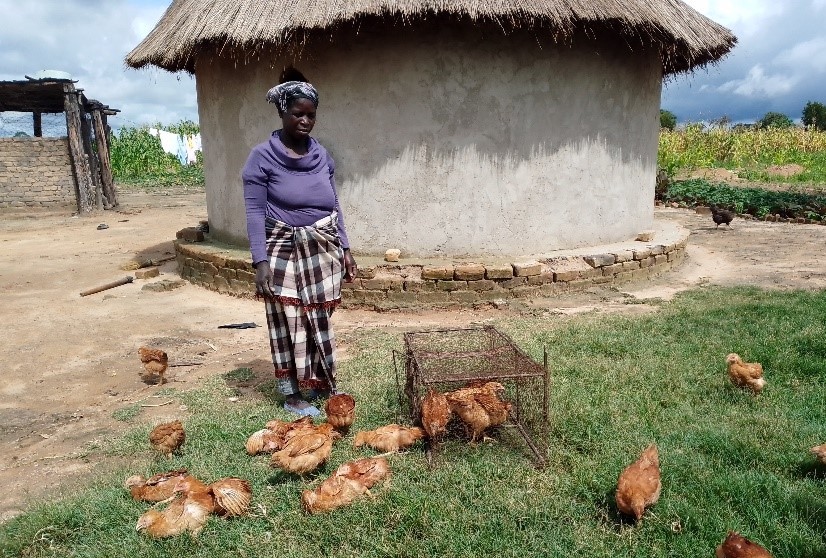The Covid-19 pandemic has intensified inequalities and aggravated the infringement of the rights of women and girls.
The pandemic has devastating impacts on humankind, with women being disproportionately affected.
A United Nations Women report released last year titled From Insights to Action, forecasted that the Covid-19 pandemic could push 96 million people globally into extreme poverty this year, with 47 million of them being women and girls.
This could bring the total number of women and girls living on US$1,90 or less, to 435 million.
However, 45-year-old Stella Tizirai from ward 22, Chirumhanzu district in the Midlands province has defied odds and is among a handful of rural women in Zimbabwe who share successful tales in the wake of the pandemic.

Tizirai is a beneficiary of a number of gender-responsive empowerment programmes that are meant to deal with the shocks and pressures of the Covid-19 pandemic across the country.
She runs a thriving poultry project courtesy of support from a non-governmental organisation Hand in Hand Zimbabwe under its poverty alleviation intervention component.
“When the nationwide lockdowns started, my poultry business did not do so well until I attended a Broiler Business Indaba organised by the Hand in Hand Chirumhanzu district team in November 2020,” Tizirai said.
“The Indaba enabled me to connect with buyers from local stores and master the concept of price screening.
“The business links and the knowledge I received from the Indaba really helped me and as a result, my income doubled.”
Tizirai is among a large chunk of Zimbabwean rural women farmers exposed to limitations brought about by the restrictions in movements meant to tame the spread of the coronavirus.
Despite playing a significant role in agricultural production, these women have been confined on the periphery of the agricultural value-chains.
“After the Indaba, I managed to sell 66 chickens to local shops in Chirumhanzu district, which I had connected with at the business Indaba, earning a cumulative US$408 from the sales,” Tizirai said.
“From these sales, I bought a cow from Hozheri village for US$400, as a way of converting my money into an asset.”
Tizirai plans to expand and she is building a bigger fowl run that can accommodate 200 chickens.
Hand in Hand Zimbabwe CEO Felix Tete said their intervention programmes where meant to mitigate challenges that communities face in the wake of natural disasters.
“Our intervention programmes are more of building strategies, mostly for women, against shocks caused climate church, drought, socio-economic challenges and socio-political decline, among others,” Tete said.
“We teach women how to fish, we don’t give them fish. We basically build their capacities, so we do economic empowerment for women. Most women bear the brunt of economic decline because they are left to fend for the families when their husbands are away in the cities or would have crossed borders to look for jobs.”
While Tete believes the Covid-19 pandemic could have had adverse effects on the lives of women, there have been successful stories in the wake of the pandemic.
“Women’s livelihoods were eroded by the Covid-19 lockdown and restrictions as they could not go out to do their business. Even our programmes to capacitate these women were affected, which left these women in dire situation,” he said.
“However, we are happy the lockdown has been relaxed, the women are picking up and we have started assisting them. About 65% of women whom we have capacitated now have own productive asserts. It’s quite a good feat for our intervention programmes in terms of development.
“According to our recent study about 75% of our entrepreneurs of which 80% are women now earn more than US$1,90 per day as net from their sales or businesses and its quite an impact we have had on the lives of women.”
Source: The Standard Newspaper

